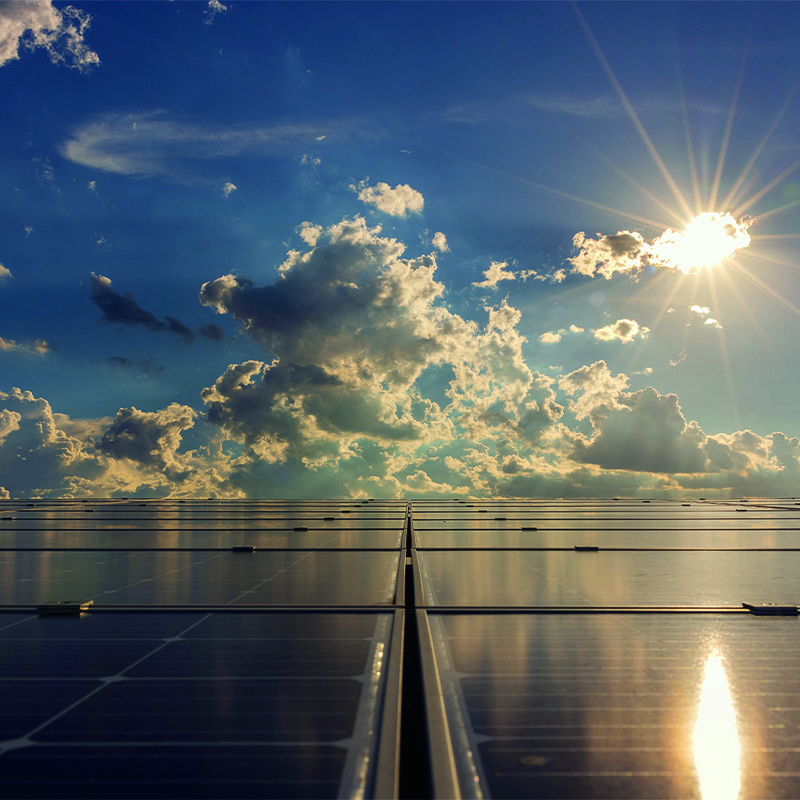
Overview of the German Rooftop Solar PV Sector
Introduction
With the publication of the recent rooftop solar tender results in Germany this month. It’s a great time to look at the state of the German rooftop solar sector. In this article I’ll look at the current condition of the sector, what factors are driving it and focus on some recent innovations in the space.
German Residential Solar is Booming
In 2022, Germany experienced a 52% increase in residential solar and storage system installations compared to the previous year. The German Solar Industry Association (BSW) reports that over the past four years, residential solar battery systems have increased fivefold, while standalone residential PV installations have quadrupled. Around 75% of German homeowners are open to installing solar PV, with one-fifth planning to do so within a year.
The primary driver for this adoption is the rise in energy prices, as 61% of homeowners cited increasing electricity bills as their main reason for considering rooftop solar. Another significant factor is the desire for independence from energy suppliers, reported by 52% of respondents. Additionally, the growing adoption of electric vehicles and heat pumps has made home batteries more appealing. A study from SolarPower Europe suggests that combining rooftop PV and heat pumps could save Germans 62% on energy bills compared to relying solely on grid power and a gas boiler.
Germany is experiencing similar trends to other large economies
Decentralizing grids in countries like Germany and the US is seen as important for maximizing energy security and solar deployment potential. Storage adds another layer to energy independence and security. As an example in California, the controversial NEM 3.0 legislation encourages a shift from standalone PV to residential solar-plus-storage. Here are some of the factors that are driving and encouraging this trend:
Solar and storage systems
More than two-thirds of residential solar systems in Germany now include storage. Combining solar generation with battery storage allows households to store excess energy, further enhancing energy independence and grid resilience.
Electric vehicle and heat pump integration
The rising adoption of electric vehicles and heat pumps in Germany has increased the appeal of home energy storage solutions. These technologies can be integrated with solar PV systems to optimize energy consumption, support grid decentralization, and improve energy security.
Financial incentives and innovative financing models
Various financing options, such as renting solar systems or obtaining loans, are making it easier for homeowners to invest in solar installations. These financing options encourage the adoption of residential solar systems, contributing to grid decentralization. A recent study found that approximately one-quarter of homeowners in Germany would rent their PV system, and a similar percentage would finance through loans.
Demand for grid stability and energy security
Decentralization of energy grids in Germany is increasingly seen as crucial for enhancing energy security and maximizing solar deployment potential. The integration of solar and storage systems at the residential level can help stabilize the grid, especially with the intermittent nature of solar and wind power.
Policy support and targets
Ambitious targets, such as Germany's goal of deploying 215 GW of PV by 2030, promote the adoption of solar and storage systems. Additionally, calls for an eightfold expansion of storage capacity to 55 GWh by 2030 further emphasize the importance of decentralized energy solutions for energy security.
The German Rooftop Solar PV sector is at the forefront of Innovation
German engineering is renowned the world over for its quality and R&D. The rooftop solar sector is no exception, here are two interesting recent developments:
AI is being harnessed to assess rooftop solar potential
German geointelligence company Deeeper.technology has developed a method using AI and digital orthoimagery to determine the net solar potential for large regions and even entire countries. By utilizing proprietary AI methods and open-source machine learning libraries, multiple neural networks are applied sequentially, each contributing to the process of evaluating rooftop solar potential. This AI-based method offers several advantages over traditional methods like manual annotations, calculations, or high-resolution Lidar projects. It can analyze larger areas quickly, reducing both effort and cost. While the method is not entirely error-free, its error rate is comparable to that of a human GIS annotator.
Balcony Solar is helping create a new way to go Off Grid
German company Green Akku, which specializes in solar modules for balcony installations, has introduced a residential battery specifically designed for use with balcony PV modules. The company claims that this new lithium iron phosphate battery enables homeowners to utilize all the electricity produced by their balcony solar panels for self-consumption, eliminating the need to send it back to the grid.
Closing Thoughts
the future of German rooftop solar PV appears promising, driven by factors such as rising energy prices, increasing desire for energy independence, and technological advancements in solar and storage systems. As more residential and commercial buildings adopt solar installations, the decentralization of the energy grid will improve energy security and stability. Innovative financing options and ambitious policy targets will further encourage the adoption of rooftop solar systems across Germany. Moreover, AI and machine learning technologies are poised to streamline the evaluation of solar potential, making it easier and more cost-effective for organizations to plan and execute solar projects. As Germany continues to focus on meeting its climate and energy goals, rooftop solar PV will play a crucial role in the nation's transition to a more sustainable and resilient energy infrastructure.
